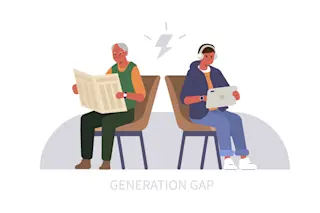Websites die constantly. The sheer size of the internet makes it feel like a permanent fixture, but individual pages only live an estimated 90 days before they change or vanish. At the same time, every single page has potential historical value. Maybe a future scholar will want to read a local news article that disappeared when the paper redesigned its website, or a political candidate is purging troublesome old statements. Perhaps someone will just want to revisit a video that made them laugh decades ago.
That anything (and everything) might someday prove valuable is why extensive internet archiving efforts exist. Those include the aptly named Internet Archive, a non-profit digital library that launched in 1996 with the humble mission of providing “universal access to all knowledge.” They’ve since digitized millions of books, videos, audio recordings, and software programs, while their Wayback Machine has saved snapshots of an estimated 544 billion ...














